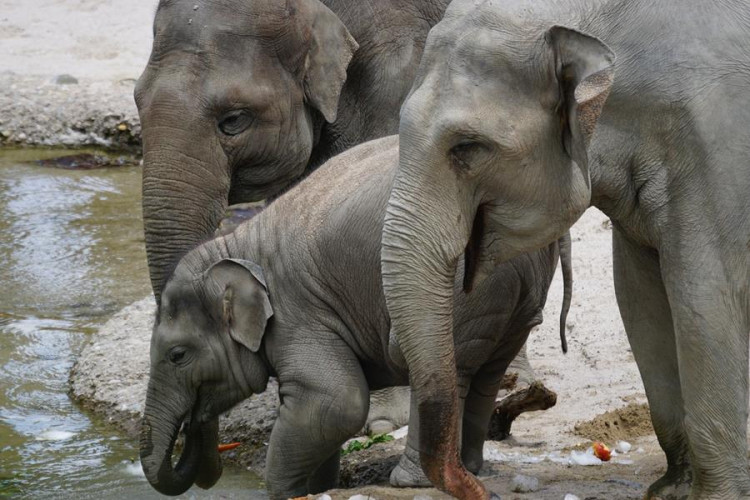The herd of 14 wild Asian elephants that have been roaming around in southwest China's Yunnan Province appears to finally be heading home, reports said Monday.
The herd of various sizes and ages fascinated the public and people around the world by making an epic 17-month odyssey into China's urban areas and raiding farms for food.
Chinese locals have delighted in the animals' antics, including parading down city streets, drinking grain alcohol, and sleeping en masse in a field.
Despite the elephants' entrance into farm villages and a close approach to the Yunnan provincial capital of Kunming, no humans have been injured.
But, the wanderers' behavior wasn't welcomed by all. Some locals complained the elephants devoured entire fields of corn and pineapples.
The highlights of their journey included the birth of a calf in Pu'er in November that resulted in more than 6.8 million yuan ($1.07 million) in damage, estimates by state broadcaster CGTN show.
At around 8 p.m. Sunday, the herd crossed the Yuanjiang River with artificial guidance, officers at the headquarters tracking their migration said.
Around 36 firefighters from the Yunnan forestry brigade are tasked with guiding the herd safely home -- keeping a close watch on the night-trekking animals that can disappear into the thick forest and walk up to 30 kilometers a day.
A path is being opened for them to return to the nature reserve where they lived in the Xishuangbanna Dai Autonomous Prefecture.
The elephants left the nature reserve in Xishuangbanna Dai Autonomous Prefecture more than a year ago for unknown reasons and trekked more than 500 kilometers north.
One male elephant that separated from the herd was tranquilized and returned to Xishuangbanna.
In June, a drone video showed the herd dozing off in a forest outside a village in Xiyang township.
When the elephants began to moving again, more than 400 emergency personnel, 375 vehicles, and 14 drones were mobilized with more than 2 tons of elephant food.
China's state-run media has cast the wandering mammals as the "lovable protagonists" in a national lesson on conservation.
Asian elephants are some of the most highly protected animals in China. Thanks to strict wildlife protection efforts, their population in the country has grown to about 300.






